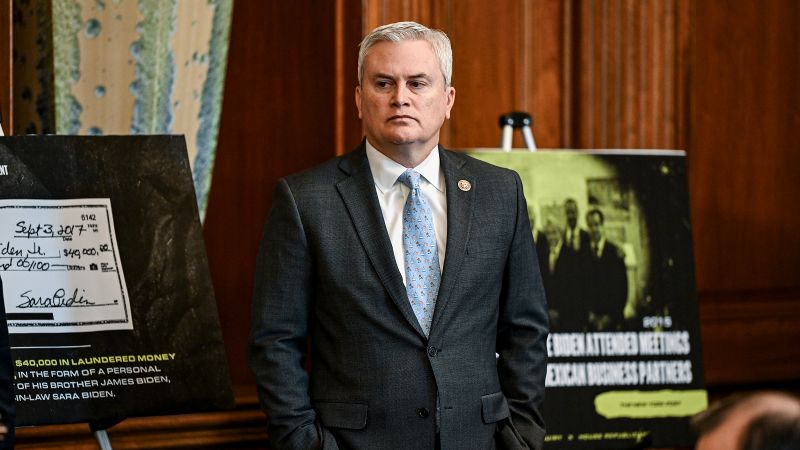House Oversight Committee Chairman James Comer, a five-term congressman, had been leading an investigation into President Joe Biden that was central to the House Republican agenda. However, after 15 months of failing to make significant progress, Comer expressed frustration and a desire to wrap up the impeachment inquiry, as it seemed unlikely that they had the votes to impeach the president. Sources indicated that Comer was considering his ambitions for higher office, potentially running for governor in the future. Despite the ongoing investigation, Comer’s interest in continuing appeared to be waning, and his colleagues noted his frustration.
The investigation into President Biden and his family, led by Comer and other top Republicans, faced challenges from the start due to Republicans in vulnerable districts and Democrats opposing their efforts. Missteps in the investigation left it stalled without a clear path to success. Comer focused on Biden’s family business dealings, making sweeping claims of bribery and influence-peddling, but some colleagues criticized his rhetoric and tactics. Despite internal criticism, Comer still had the support of Speaker Mike Johnson and other party leaders, who commended his work and dedication to transparency.
The inquiry, which faced setbacks and controversy from the beginning, struggled to generate evidence to support the accusations against President Biden. Testimony from witnesses did not provide clear evidence of impeachable offenses, leading some Republicans to question the direction of the investigation. Even high-profile witnesses like Hunter Biden failed to provide a smoking gun, leaving the inquiry at a standstill. The failed impeachment of Homeland Security Secretary Alejandro Mayorkas also raised doubts about the feasibility of impeaching the president.
As the investigation faced challenges and internal divisions, Comer and other GOP leaders were debating how to conclude the inquiry. Some Republicans believed that they did not have the votes to impeach the president on the House floor, with discussions of sending criminal referrals to the Department of Justice. There were differing opinions among Republicans, with some suggesting it was time to move on, especially with the upcoming election in mind. Comer’s decision to invite President Biden to testify at a hearing and then rescind the invitation added to the tension surrounding the investigation.
Despite the challenges and criticisms faced by Comer and the House Republicans leading the investigation, they continued to defend their work and push forward. The ongoing efforts to gather more evidence and insights into Biden’s family business dealings highlighted the complexities and controversies surrounding the inquiry. With the possibility of criminal referrals and potential impeachment articles in the future, the fate of the investigation into President Biden remains uncertain. As debates over the direction and conclusion of the inquiry persist, the future of the investigation will have significant implications for House Republicans and their goals for accountability and transparency.


